
In the early days of the pandemic, I spent a lot of time covering the then newly released Genshin Impact. The first piece was an article about how the game had reinvented the gacha game for a wider audience. The second was about whether or not it was even worth our time.
Ever since then, it’s been the top of the gacha game genre, its innovations now the industry standard. For the most part, the game has stood relatively uncontested in sheer profitability. r/Gachagaming has a fun little tradition of posting the earnings of as many gacha games as possible, so you can see just how well these games perform. For May, Genshin didn’t make that much money compared to its past hauls, but even during a relatively quiet time for the game, it still raked in a cool $53 million between the Chinese version and the global version.
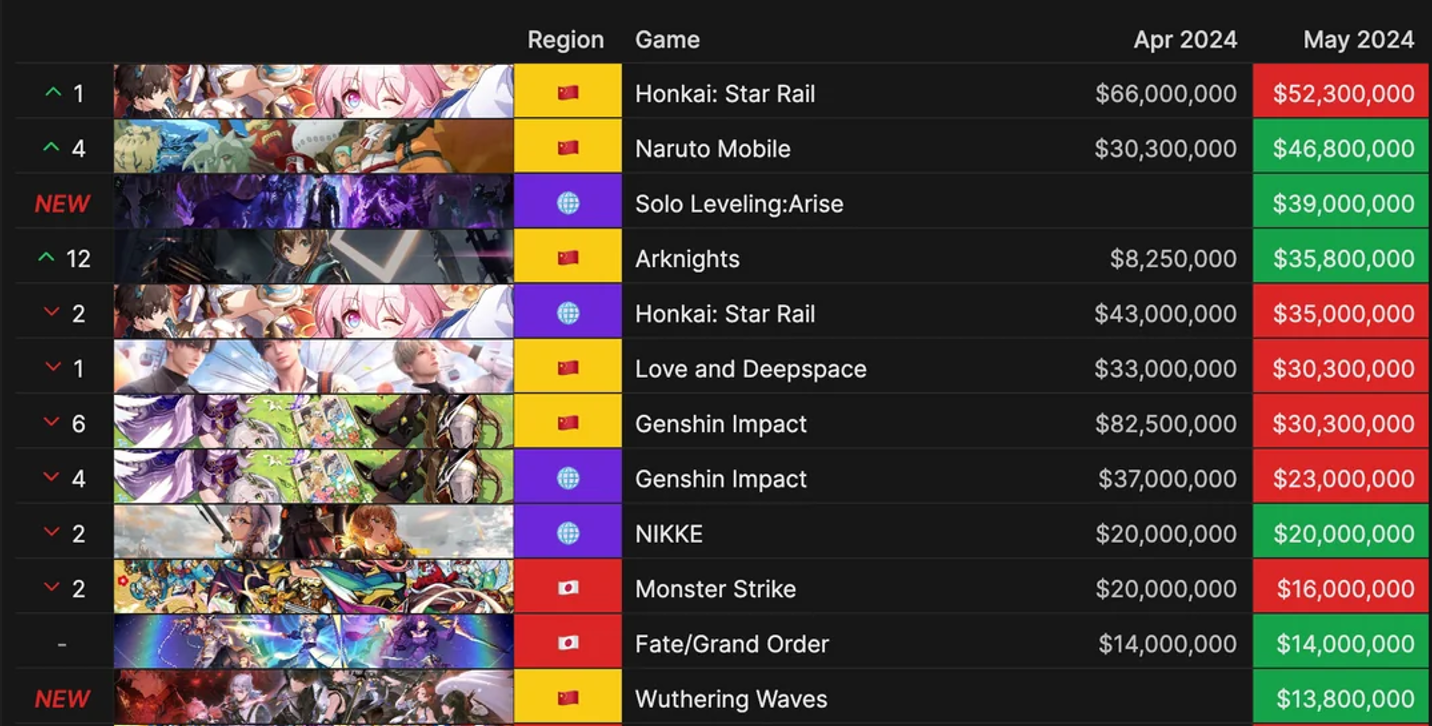
Enter the competition: Wuthering Waves. The much awaited sequel to Emily Bronte’s Wuthering Heights. Developed by Kuro Games, it is an open-world action RPG gacha game. I actually never heard of the game until it released, but Kuro apparently spent a ton of money on marketing, even taking over Times Square. And when I did hear about it, I wrote it off as just another Genshin clone. But then I started seeing a large number of my 10th grader students playing the game (and not doing their computer science assignments like they should be), so I got curious, installed the game, and was… immediately unimpressed.
Wuthering the launch woes
Everything I said about Genshin Impact back then still holds true. It’s a feature-complete game with gacha mechanics. It also runs smooth like butter.
But that wasn’t the case with Wuthering Waves. At the login screen, there was immediate stuttering. “That’s a bad sign,” I said to myself. I wasn’t wrong. The game was just not running super great. My PC has a Nvidia 1080TI (remember those?) with an I7-6700K. It’s pretty old, but considering how gacha games are meant to run on both mobile and PCs, the game shouldn’t be struggling badly. Even running the game on the lowest settings saw some performance dips. I ran the game on a more up to date computer with a RTX 3060, and the performance was just a little better.
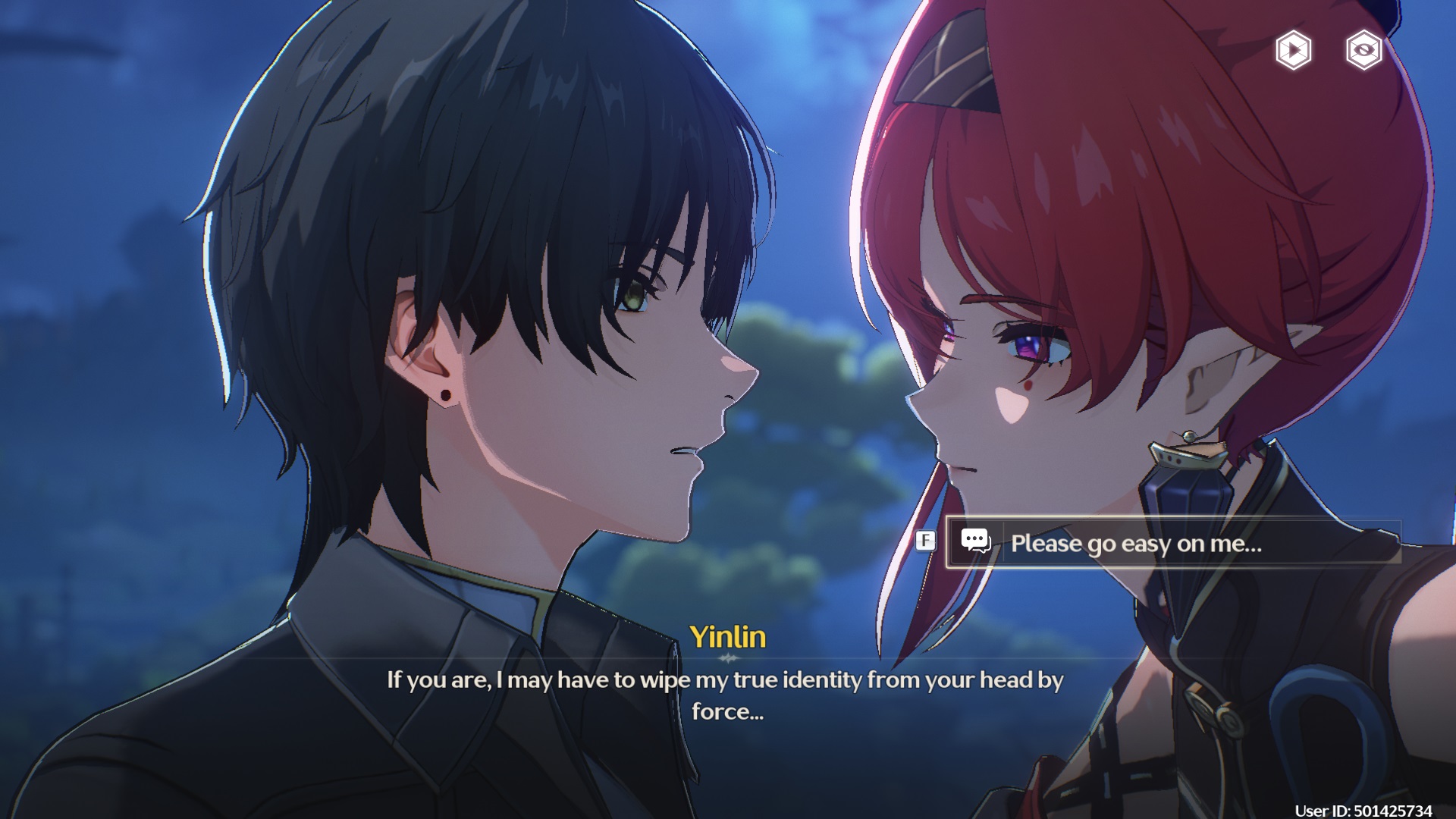
It turns out I wasn’t the only one having these issues. The game just wasn’t tuned super well. Add that to the reports of connection issues and lag, and this could have killed a game. Of course, Kuro Games knew exactly what to do in order to survive.
A wave of gifts
What’s better than a bunch of gifts? Hella gifts, that’s what. That’s exactly what Kuro Games did. The devs pretty much showered the playerbase with free gacha pulls, the premium currency known as astrite, and even offered a choice of a specific five star from the standard banner. This amount of generosity in a gacha game is honestly unprecedented; these games exist to make money, not hand it out. A famous example was Genshin Impact’s third birthday when MiHoYo famously gave out three free gacha pulls. You better believe there was backlash! Three years of operations, and the playerbase got three free gacha pulls. Meanwhile, here’s Wuthering Waves giving away a free five star character that players can choose, plus an absurd number of free spins – I lost count after my 50th.
The crazy amount of free stuff WuWa gave out pretty much created the breathing room to let the game cook a little longer while retaining its playerbase. We’re about a month out from the release, and for the most part, the tech issues have started to stabilize. There’s still the occasional stutter, but the game has started running a little better. With the new 1.1 version coming soon, Kuro promises even more improvements.
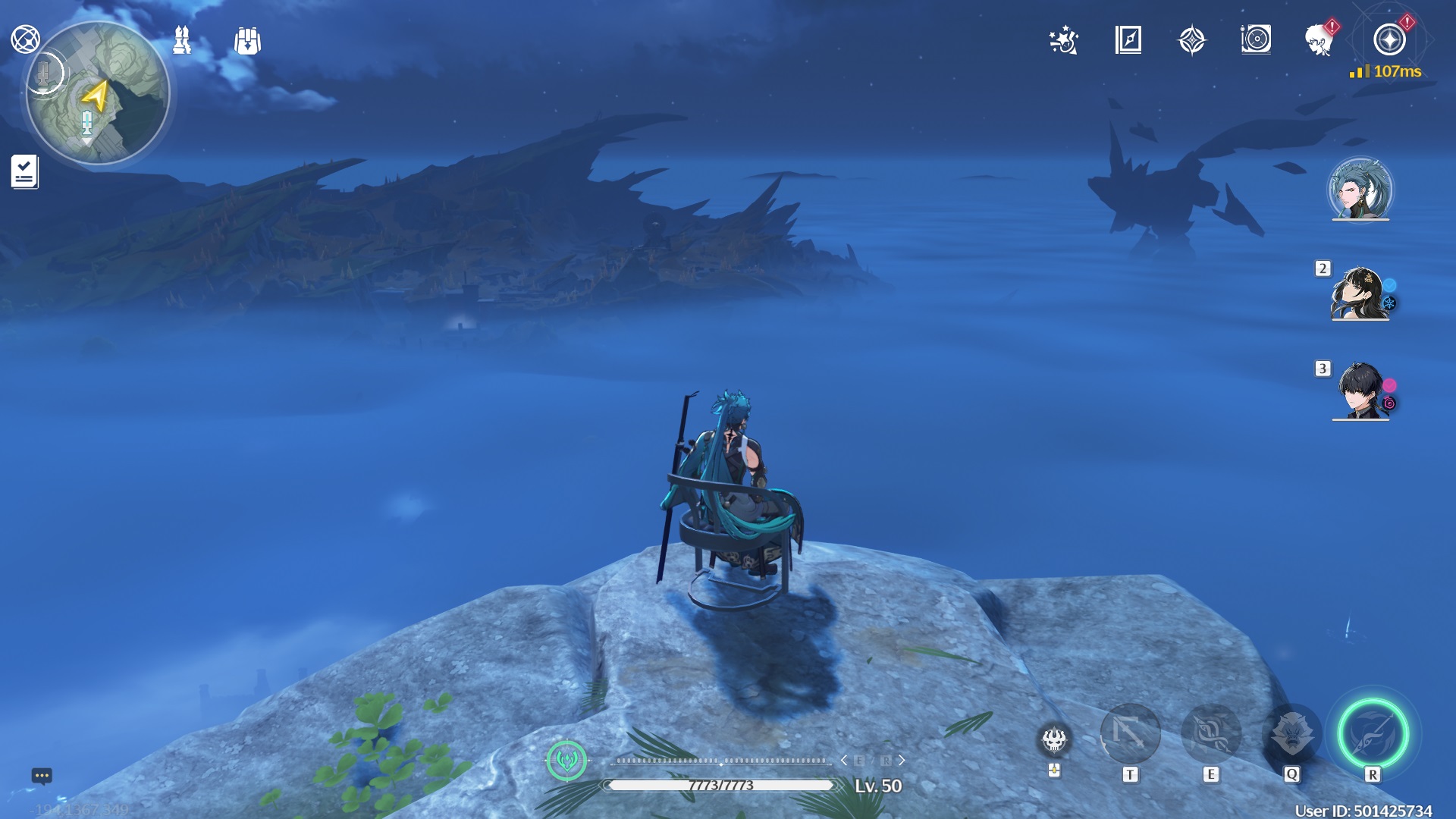
A good value
Speaking of improvements, just what makes this game stand out from the rest of the gacha games? And how the hell can a gacha game ever be a good value? It all boils down to power.
Modern gacha games often have a main character (MC), which is basically the player self-insert. They’re considered five star units, but oftentimes they’re not particularly powerful. Wuthering Waves’ main character, Rover, is considered by many to be one of the most powerful MCs in any gacha game. Rover gets even more powerful at the end of the current story arc. That’s not just in the story sense either; players consider Rover a worthwhile character to build to the point that he’s considered meta, capable of soloing the most difficult content too.
So in theory, a player doesn’t need to roll on the gacha to be viable. If you like Rover that much, then you can just play him effectively and keep saving your astrite for a character you’ll want later down the road.
Really, that rule of thumb isn’t just for Rover; pretty much any character can be a player’s main choice. All the characters have enough tools to solo all kinds of content and bosses.
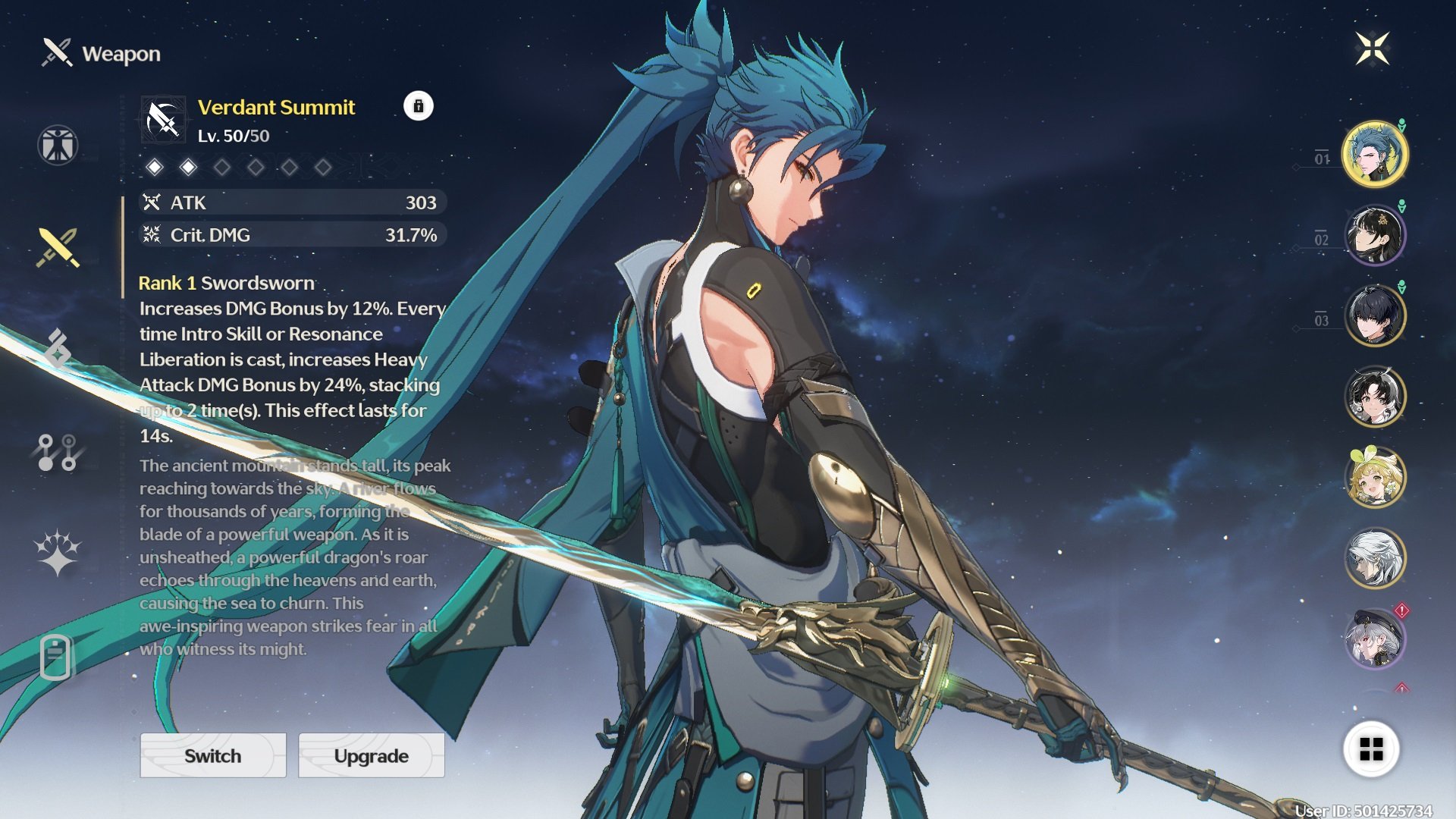
A core mechanic of Genshin Impact is its reaction system; every character has a certain element. Usually, the character’s special attack will put a debuff on his enemies related to that element. So a water element character will make an enemy wet. To really dish out the damage in Genshin Impact, players will need to combine those elements. So striking a wet enemy with electricity will electrocute it for damage. Then there’s the party composition: In Genshin Impact, players will need a party of four characters. The idea is to build good synergy between characters so that they can take on as many challenges as possible. Doing the math, that’s four built characters. While it’s entirely possible to solo Genshin Impact with a character, the game is built around having that party-scale comp that causes elemental reactions to maximize on DPS.
Wuthering Waves is designed differently. For one thing, there’s no equivalent to an elemental reaction system in the game, and the maximum party member size is three. Characters still do specific elemental damage, but a character that deals aero (wind) damage can still damage enemies of the same element.
In other words, it’s entirely possible to build just one character to take on almost all of the challenges in WuWa. It’s the only game where I’ve ever rolled on the weapon banner because I knew most content can be done with a single character. It was such a good value that I couldn’t pass it up. I like how I only really need to build one character to be relatively successful in this game. It allows me to not feel the pressure to roll on the next banner because they’re a good synergy for my team or something. Having to build out only one character rather than four really makes a difference.
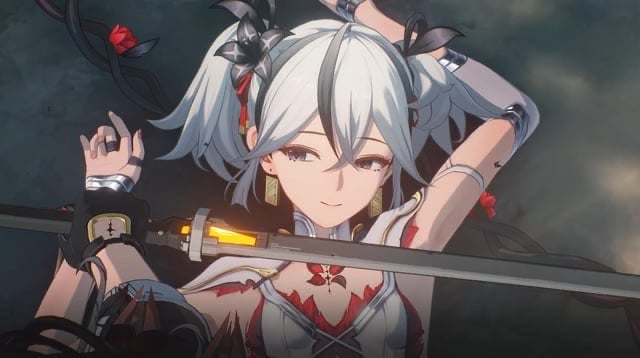
The gacha system in WuWa is also pretty generous. Genshin Impact pioneered the now widespread pity system, which works like this: Every time a person rolls on the character banner (the featured character), the chances of receiving the character goes up. In Genshin, a five star character is guaranteed every 90 rolls. Key word: five star. The banner character is not guaranteed. When the player does receive the five star, there’s a “coin flip” that gives the player a 50% chance of getting one of the standard five star characters or the featured five star banner. If the player doesn’t get the banner character on that coinflip, he’s guaranteed to get it the second time. So that means that if you absolutely have to have the character, you’ll need to fund 180 gacha pulls, and that’s if they want only the character and not the weapon.
By contrast, Wuthering Waves demands only 80 rolls of the gacha. There’s still that coinflip upon receiving a five star, but the difference between 160 rolls and 180 is a pretty big difference. Weapon banners, which is often the main whale bait, will also guarantee the weapon by the 80th spin.
It’s still a gacha game with all the gambling it entails, so don’t expect a truly good value compared to regular MMORPGs. I mean it in the I’m-suffering-from-a-gacha-flavored-Stockholm-syndrome-and-it’s-a-good-deal-because-it’s-cheaper-than-other-gacha-games kind of value. But I still have so much more to say about this game. Despite its rough launch, there’s an agreement within the gacha community: Wuthering Waves was an impactful release.
 The four wind tiles in Mahjong open all sorts of winning combinations for players of this ancient game – and the “Asian” MMO subgenre is just as varied as the many rulesets in Mahjong. Join Massively OP’s Carlo Lacsina here in our Four Winds column as he covers the diverse assembly of MMOs imported from the East!
The four wind tiles in Mahjong open all sorts of winning combinations for players of this ancient game – and the “Asian” MMO subgenre is just as varied as the many rulesets in Mahjong. Join Massively OP’s Carlo Lacsina here in our Four Winds column as he covers the diverse assembly of MMOs imported from the East!














